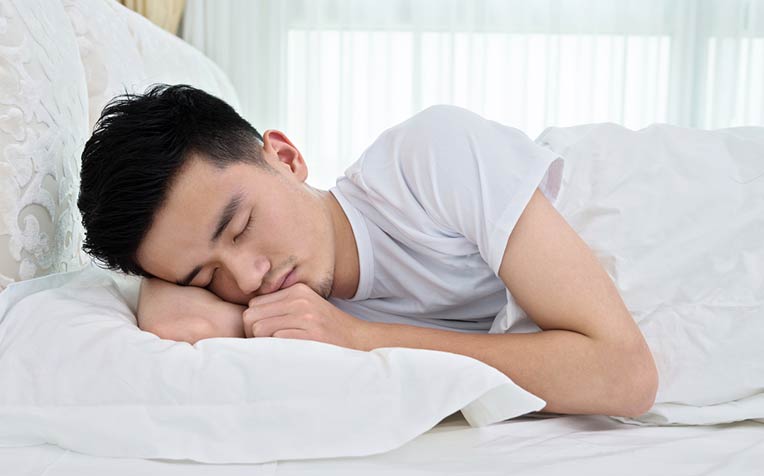 Caption: How can insomnia be better managed? Dr Tan Shian Ming, Consultant, Department of Psychiatry, Singapore General Hospital (SGH), offers several simple and useful tips. (iStock photo)
Caption: How can insomnia be better managed? Dr Tan Shian Ming, Consultant, Department of Psychiatry, Singapore General Hospital (SGH), offers several simple and useful tips. (iStock photo)
"Cultivating good sleep habits can go a long way towards helping you have restful sleep," says
Dr Tan Shian Ming, Consultant,
Department of Psychiatry,
Singapore General Hospital (SGH), a member of the
SingHealth group.
Here are some simple and useful sleep hygiene tips to help combat insomnia.
Tips to combat insomnia
1. Adopt a regular sleep schedule
Make it a point to go to bed and wake up the same time every day, be it weekends or holidays. This will help reinforce your body's sleep-wake cycle.
2. Stay active
Exercising regularly promotes better, deeper sleep and helps you to fall asleep faster. But avoid strenuous exercise up to four hours before bedtime as it might overstimulate you.
3. Limit daytime naps
Daytime naps can interfere with your sleep at night, especially if you're already struggling with insomnia or have poor quality night time sleep. If you must take a nap in the day, limit it to no more than one hour and in the early part of the afternoon.
4. Have a bedtime ritual
Soothing practices like taking a warm shower or dimming the lights before going to bed can help you wind down. However, steer clear of the TV and other electronic devices as these tend to interfere with sleep. If there is distracting noise, you can try to block it out by using a fan to generate constant, low-frequency "white noise".
Related article:
This coloured light prevents you from sleeping
5. Avoid alcohol before bedtime
Alcohol is NOT a sleeping aid. It might seem to make you sleepy but it actually makes for shallow, disturbed sleep.
Related article:
Can drinking beer and wine daily actually be beneficial for health?
6. Mind your bedtime snacks
Avoid consuming caffeine late in the day as it may disrupt sleep up to 12 hours later in sensitive individuals. Have a glass of warm milk or some light crackers if you must have a bedtime snack. These contain tryptophan, an amino acid that may help induce sleep. Don't drink or eat too much or you may have to get up to use the restroom before morning.
7. Limit use of sleeping pills
Many sleep medications have side effects and are not meant for long-term use. As they only address the symptoms and not the actual causes, they can worsen your sleep problem.
8. Don't lie awake if you can't sleep
If you've been lying awake in bed for more than 15 minutes, get out of bed to do a non-stimulating activity like reading a book. Staying in bed may lead you to ruminate old worries.
9. Talk to your doctor
If all your attempts to solve your sleep problems have been unsuccessful, don't choose to suffer in silence. You may have a sleep disorder condition called
sleep apnoea (sleep apnea). Please talk to your doctor or visit the
Sleep Disorder Unit at SGH.
Related article:
Insomnia – Is it more likely to kill men or women?
--
Articles on
HealthXchange.sg are meant for informational purposes only and cannot replace professional surgical, medical or health advice, examination, diagnosis or treatment.